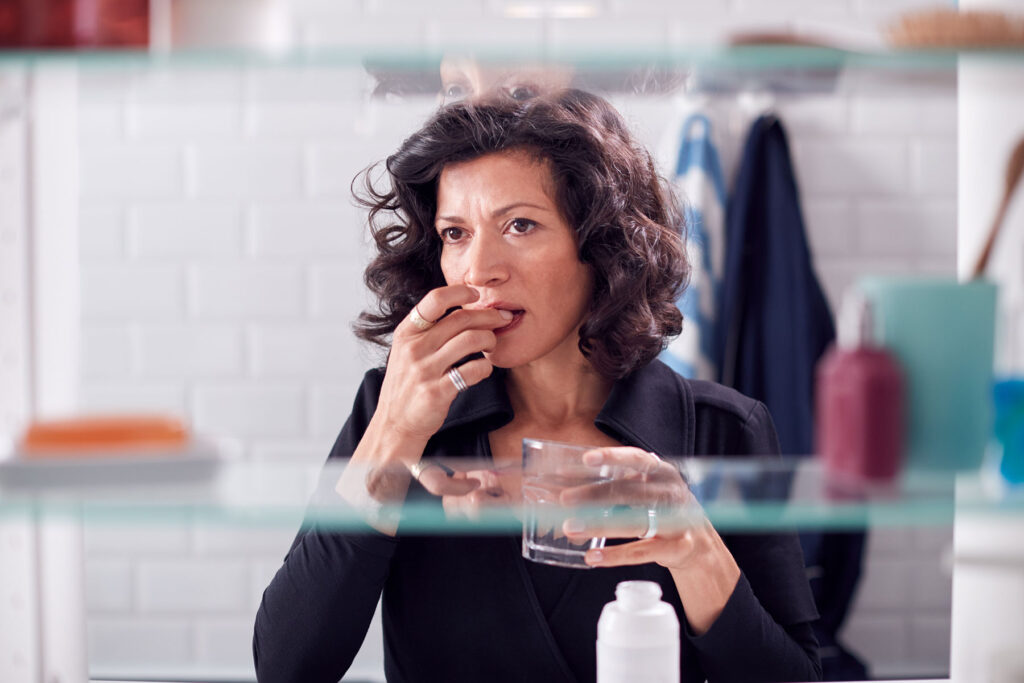People don’t always consider the risks of mixing some over-the-counter medications with alcohol. However, negative interactions are possible. Can you drink alcohol while taking cetirizine? Unfortunately, ignoring the warnings about mixing cetirizine and alcohol could indicate you are dependent on alcohol. But the alcohol addiction treatment programs at Promises can help.
Call Promises at 844.875.5609 if alcohol is controlling your life.
What Is Cetirizine?
Cetirizine is an over-the-counter antihistamine used to treat allergy and cold symptoms. It reduces histamine, a natural chemical in the body that causes itching, sneezing, runny nose, and watery eyes. It may also be used to ease the symptoms associated with hives and atopic dermatitis.
Some cold and allergy medications include cetirizine as one of their ingredients. The substance is also available as a single-ingredient medication.
Cetirizine is considered safe when used as directed. Some people report allergic reactions to it. Taking it with other OTC medications, such as Benadryl, could cause an interaction.
Speak to your doctor about any other medications or herbal supplements you are taking before using cetirizine.
The Risks of Combining Cetirizine and Alcohol
Can you drink alcohol while taking cetirizine? It’s always advisable to check the precautions when using new medications, especially when it comes to drinking alcohol while taking them. Even OTC medicines can cause complications when mixed with alcohol.
Alcohol can increase the listed side effects of cetirizine, such as drowsiness, difficulty concentrating, and dizziness. In addition, using alcohol while you are ill is not recommended. Alcohol can reduce the body’s natural ability to fight illness.
Antihistamines like cetirizine can enhance the effects of alcohol. Individuals who are unaccustomed to consuming alcohol may become inebriated quickly when combining cetirizine and alcohol.
The main dangers of combining alcohol and cetirizine are extreme drowsiness and confused thinking. This can lead to poor decision-making and putting yourself or others in risky situations.
Cetirizine and Alcohol Use Disorder
Becoming addicted to OTC antihistamines is possible but rare. A bigger concern is using cetirizine purposefully to enhance the effects of alcohol. Mixing alcohol with any medication that warns against the combination is a sign you may be misusing alcohol or have developed an alcohol use disorder.
Continuing to use substances despite health risks is often one of the warning signs of addiction. Other signs of alcohol use disorder include:
- Losing interest in activities you once enjoyed
- Avoiding people or events where alcohol is not allowed
- Facing trouble in personal and/or professional relationships due to alcohol
- Being unable to reduce or stop drinking even though you want to
- Experiencing withdrawal symptoms when you stop drinking
- Continuing to use alcohol even after experiencing negative consequences
- Spending the majority of your time getting alcohol, drinking alcohol, or recovering from alcohol use
Additionally, friends and family members may have expressed concerns about your drinking, and alcohol may be interfering with your career, academic, or personal goals.
If you or someone you know is exhibiting any of these signs, it’s important to speak with a mental health or addiction specialist. Ignoring the signs of an addiction use disorder won’t make it go away. Without help, most addictions become more severe with time, and recovery becomes more difficult.
Reclaim Your Health at Promises Starting Today with Addiction Treatment
Can you drink alcohol while taking cetirizine? Mixing alcohol with other medications despite label warnings may not mean you have an addiction issue, but it could indicate you are misusing substances, which can put your health at risk.
Promises provides comprehensive, compassionate care that includes a complete health evaluation and medical detox. A thorough evaluation allows your recovery team to create a customized treatment plan that will best support your recovery. To learn more about our treatment programs, call Promises at 844.875.5609.

